Case 5
- First Publications
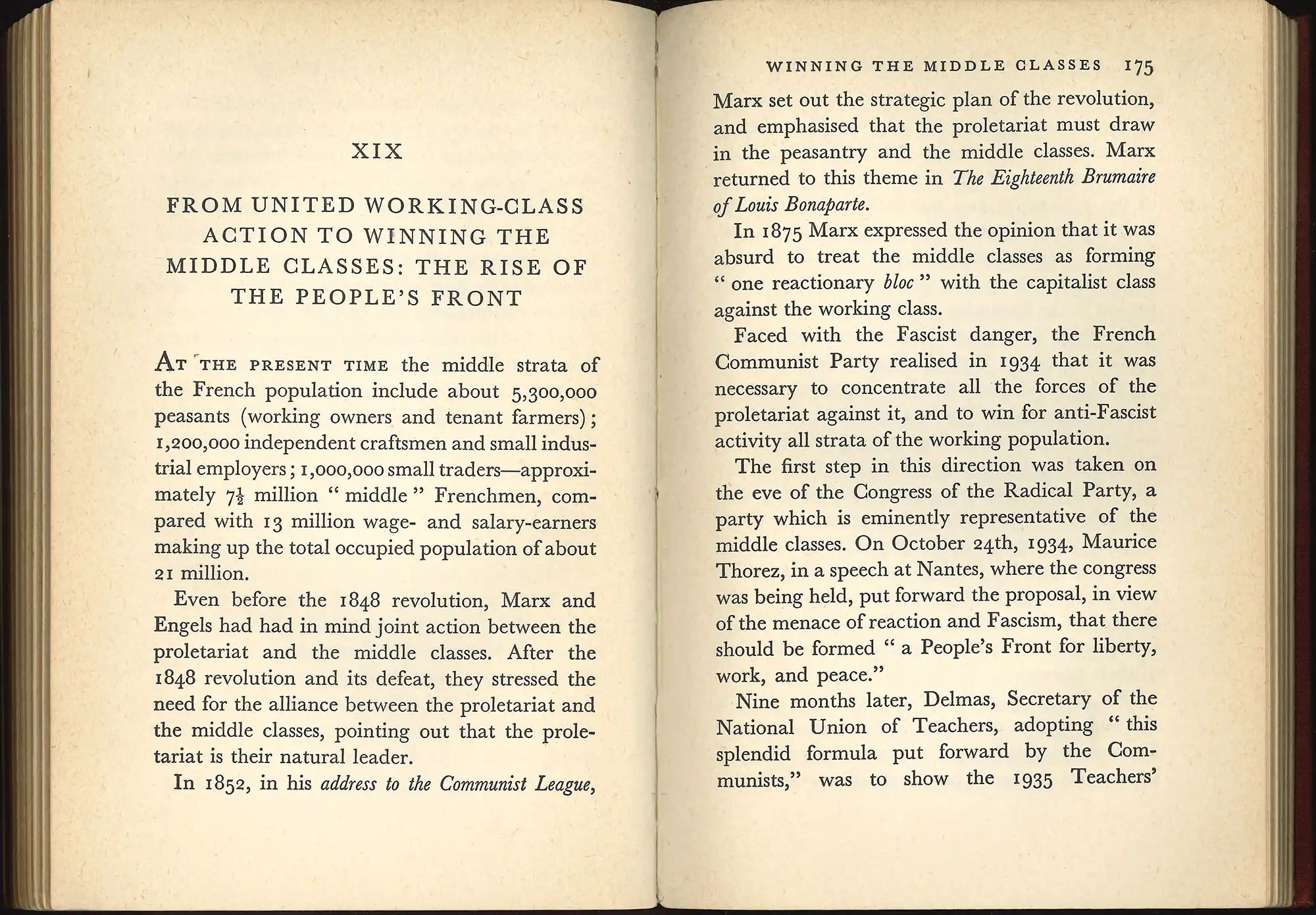
Maurice Thorez, France to-day and the People’s front. (1936). LBC 944.08 THO
The first advertisement of the LBC appeared in March 1936. In May 1936, the first Left Book Club book was published: France today and the People’s front by Maurice Thorez, who was general Secretary of the French Communist Party. Thorez’s book, which also appeared in 1936 through the New York-based publishers International Publishers, outlined a very real threat in France of a fascist coup, met with resistance by the French working-class movement, the Popular Front, who actively pushed for united anti-fascist action. Gollancz aimed at some 2500 members for this title; it was subscribed by 5000.
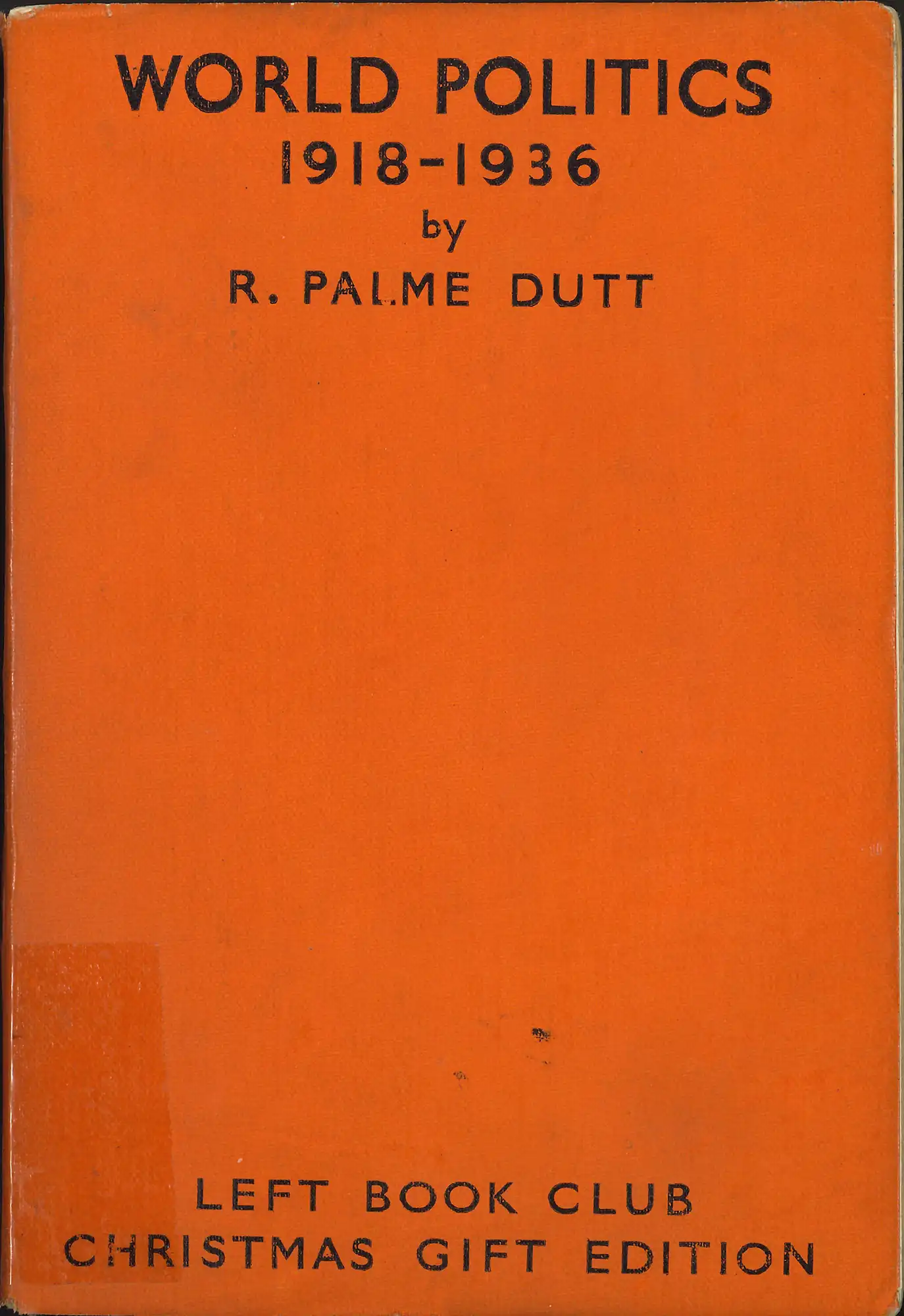
Rajani Palme Dutt, World politics 1918-1936. (1936). LBC 327 DUT
The LBC ‘Christmas Gift’ book for 1936 was Rajani Palme Dutt’s World politics 1918-1936. Dutt (1896–1974) was a founding member of the Communist Party of Great Britain, a loyal supporter of the Soviet Union, and scathing opponent of fascism. His pro-Stalinist stance paid dividends; it is recorded that the Communist Party of the Soviet Union paid for his old age pension. Dutt wrote two other books for Gollancz: A guide to the problem of India (1942) and his classic India today (1940), written from a Marxist approach.
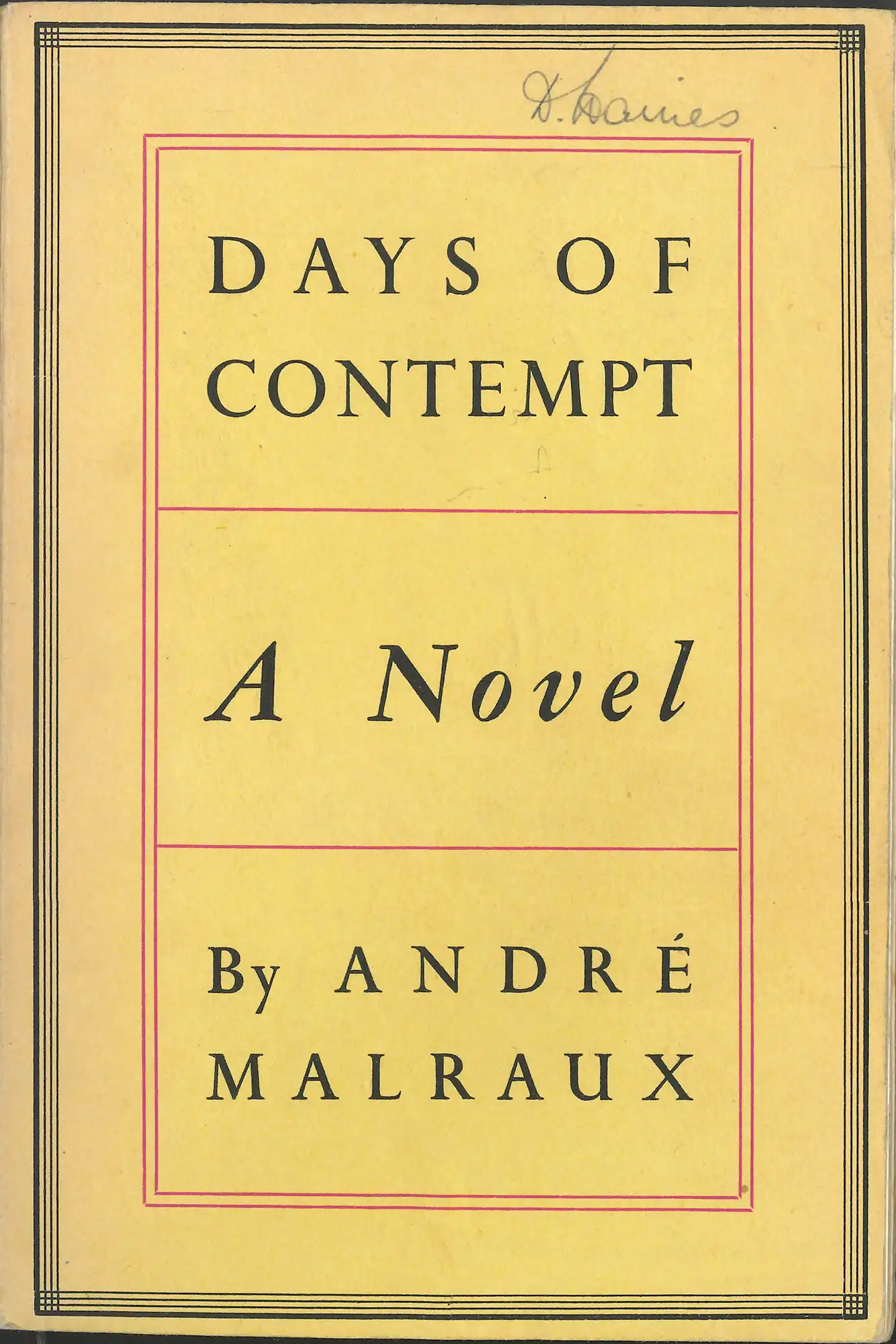
André Malraux, Days of contempt. (1936). LBC 843 MAL
Realising that novels also sold well, Gollancz initiated the publication of this genre under the LBC imprint. French writer André Malraux’s Days of contempt was the Monthly Book choice for August 1936. Within its pages, Malraux (1901-1976) tells the story of the underground resistance to the Nazis in Germany, ultimately affirming the values of collectivism over individualism. This was the only one of Malraux’s books that was allowed to be published inside the Soviet Union. Gollancz’s ‘novel’ idea, an attempt to balance political polemics with adventures narratives did not sit well with most LBC members.
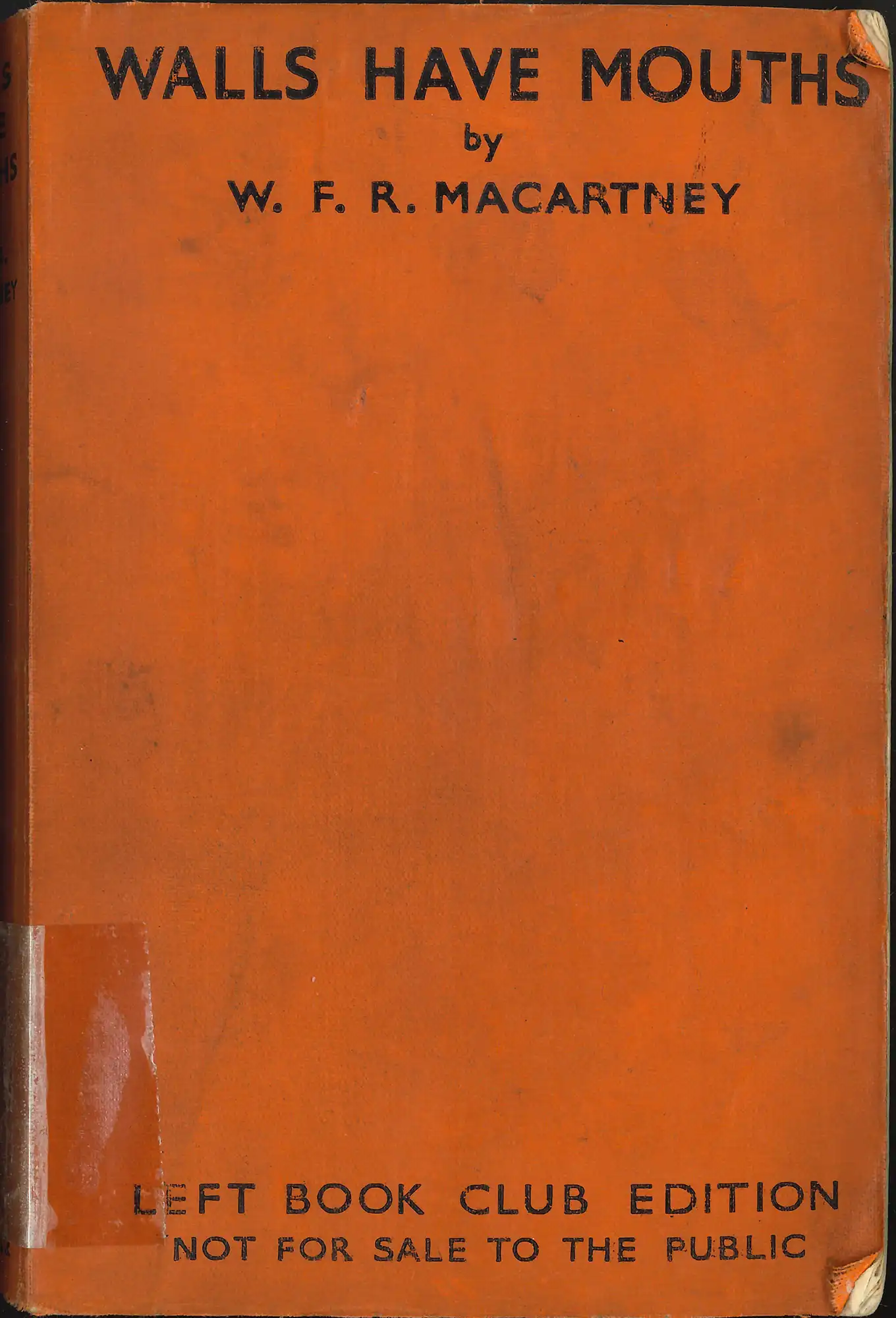
Wilfred Macartney, Walls have mouths: a record of ten years’ penal servitude. (1936). LBC 365 MAC
Wilfred Macartney’s Walls have Mouths (1936) was a particularly good seller for the LBC. It detailed Macartney’s experience in prison, serving eight years, mostly in Parkhurst on the Isle of Wight. As the so-called ‘Russian Spy’, he (1899-1970) was found guilty in 1928 on 5 counts of obtaining information calculated to be useful to an enemy, that is, Russia. Gollancz read the narrative and liked the racy nature of it; Orwell reviewed it and called it ‘remarkable’. The book was so influential that it was said to have lifted the ban on cigarettes in prison. One reader could not put it down, inscribing at the front of the second copy: ‘Read thro’ at one sitting April 2 1937.’

Wilfred Macartney, Walls have mouths: a record of ten years’ penal servitude. (1936). LBC 365 MAC
Open image in new window
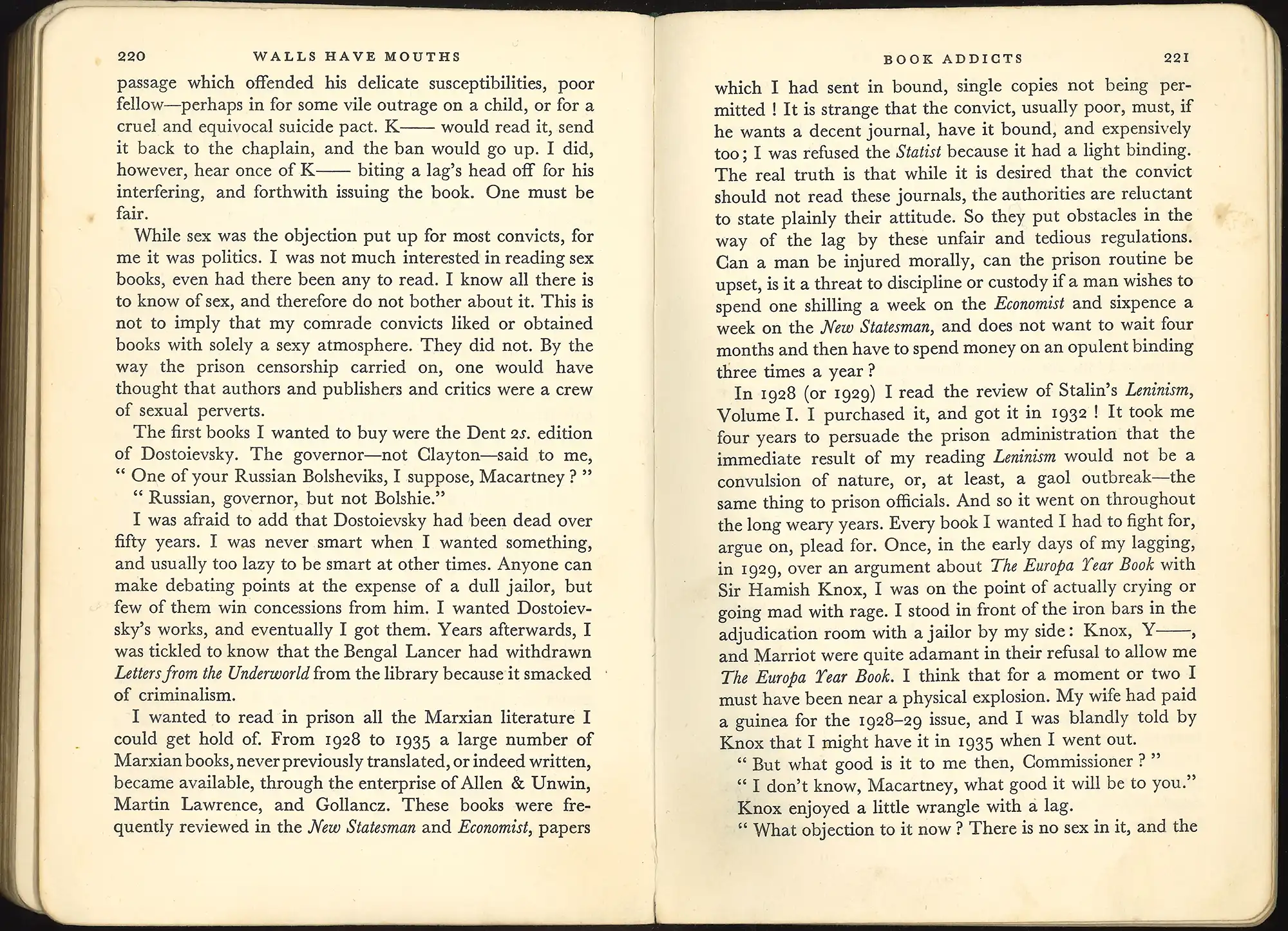
Wilfred Macartney, Walls have mouths: a record of ten years’ penal servitude. (1936). LBC 365 MAC

Wilfred Macartney, Walls have mouths: a record of ten years’ penal servitude. (1936). LBC 365 MAC
Open image in new window
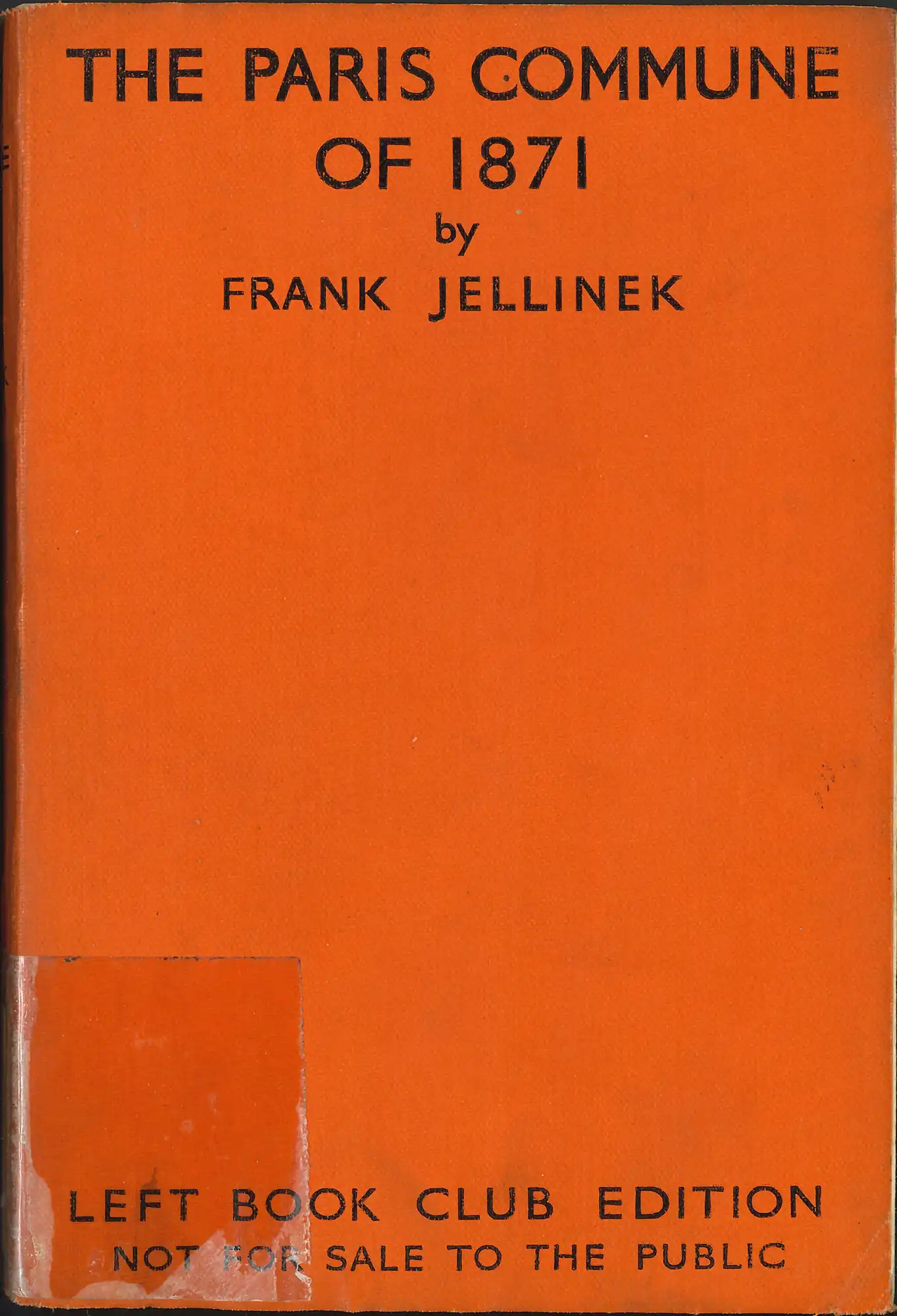
Frank Jellinek, The Paris Commune of 1871. (1937). LBC 944.08 JEL
Frank Jellinek (1908-1975) was an American journalist, who because of his political leanings, ended up classified as an enemy of the German state, listed in Hitler’s ‘Black Book’. He gave LBC members a history lesson with his Paris Commune of 1871, the book choice for February 1937. He wrote: ‘No one studying the Commune of Paris could fail to be struck by its modern parallel, of Asturias in 1934.’ In October 1934, Asturian miners in Spain held a major strike against the conservative Confederación Española de Derechas Autónomas (CEDA) political party. The rebellion was later crushed by the Spanish Navy and the Spanish Republican Army.
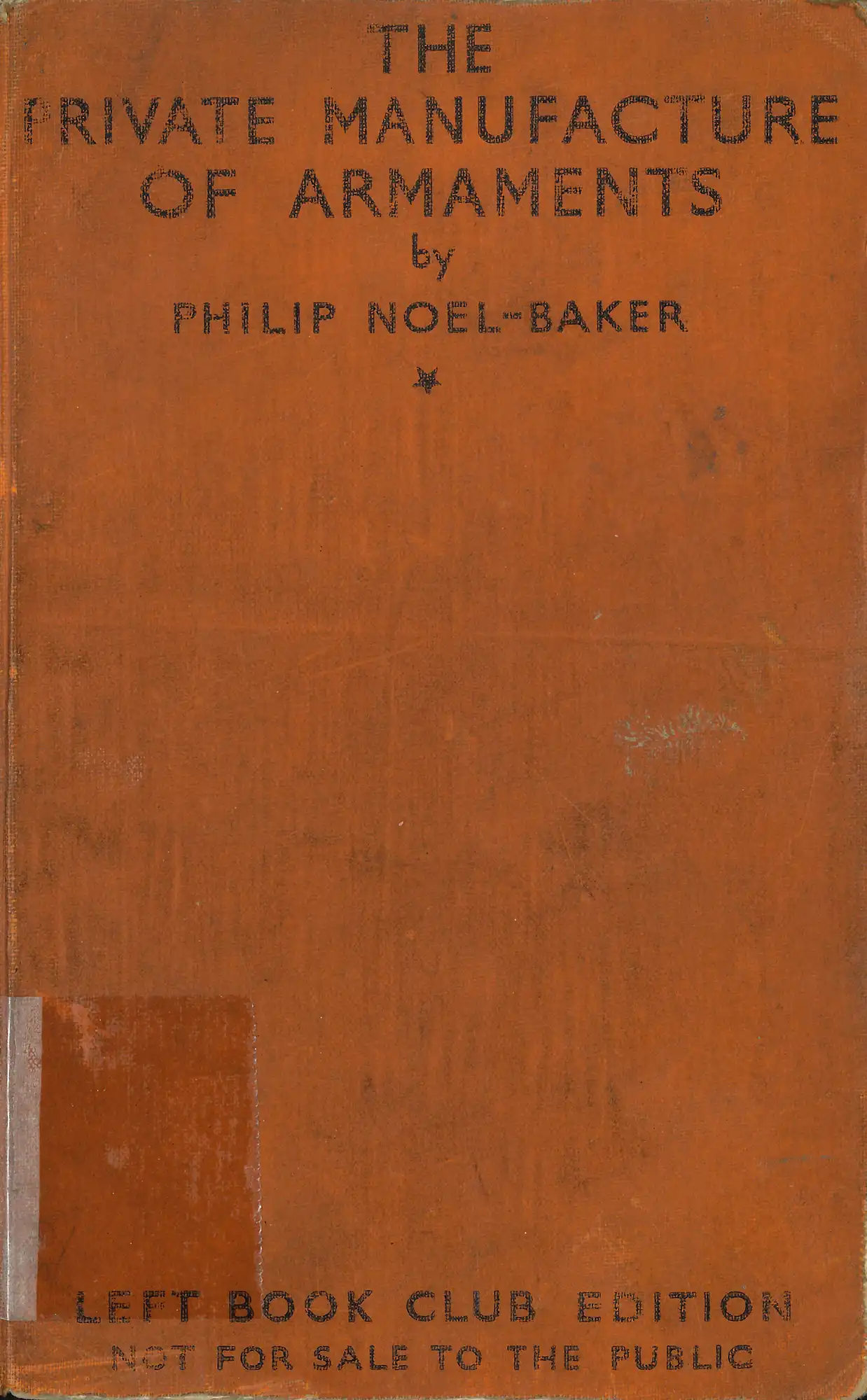
Philip Noel-Baker, The private manufacture of armaments. (1936). LBC 338.476234 NOE
Baron Noel-Baker (1889–1982) was a politician renowned for his support for disarmament. His book, a devastating account of international intrigue, the hawking of wares between countries, scandals, and the deliberate manipulation of the press and public opinion, makes for sober reading. And this battered copy of The private manufacture of armaments was obviously popular with Dunedin Public readers, perhaps taking to heart the prefatory note by Viscount Cecil: ‘Everyone who cares for peace should it [the book]’. It was taken out – or renewed – 28 times between 1 October 1938 to 22 November 1941. It formed one of Gollancz’s Additional series titles for October 1936.






